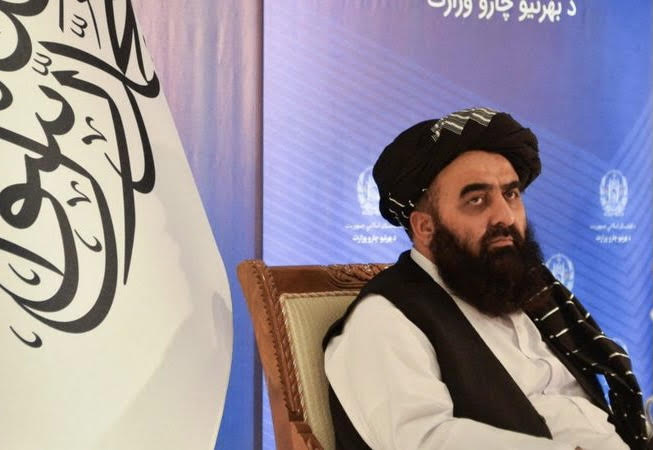There are no products in your shopping cart.
| 0 Items | £0.00 |


AFGHANISTAN'S new foreign minister Amir Khan Muttaqi has asked that the country's Taliban government be allowed to address the United Nations General Assembly currently taking place in New York to explain its stance.
Last month, the Taliban seized power in Afghanistan after dramatically deposing the government and taking control of the capital Kabul. Since then, the fundamentalist sect has been struggling to form a government, has not gained international acceptance and cannot access foreign aid as all of Afghanistan's foreign assets have been frozen.
Face with an impossible situation, the Taliban are appealing for sympathy, claiming that their government will not be as brutal as the last time they were in power between 1996 and 2001. With world leaders currently meeting at the United Nations (UN) in New York, Mr Muttaqi has written to the global body, asking that he be allowed to address it.
Having received the request, a UN committee will rule on it but it is highly unlikely to happen during the current session of the body. As part of this new charm offensive, the Taliban have also nominated their Doha-based spokesperson, Suhail Shaheen, as Afghanistan's UN ambassador.
According to the Taliban, Ghulam Isaczai, the envoy for the ousted government no longer represents Afghanistan. Both requests will be discussed by a credentials committee, whose nine members include the US, China and Russia but they are unlikely to meet before the end of the current session next Monday and until then, under UN rules, Mr Isaczai will remain Afghanistan's ambassador to the global body.
Mr Isaczai is expected to make a speech on the final day to the chagrin of the Taliban who said he no longer represents Afghanistan. No government has formally recognised the Taliban as Afghanistan's new government and for the UN to agree to its nominee for ambassador would be an important step towards international acceptance.
In Afghanistan itself, the last minister from the deposed government, Wahid Majrooh, has left office as public health minister after hearing that he had been replaced. When the Taliban last controlled Afghanistan, between 1996 and 2001, the ambassador of the government they overthrew stayed on as a UN representative, after the credentials committee deferred its decision on competing claims for the position.
However, this time around, several countries, lead by Qatar have urged the UN to stay engaged with the Taliban. Qatar has become a key broker in Afghanistan having hosted talks between the Taliban and US which culminated in a 2020 agreement to withdraw US-led Nato forces.
Qatari ruler, Sheikh Tamim bin Hamad Al Thani, said: "Boycotting them would only lead to polarisation and reactions, whereas dialogue could be fruitful." Qatar has helped Afghans and foreign nationals leave the country since the Taliban takeover and has facilitated recent intra-Afghan peace talks.